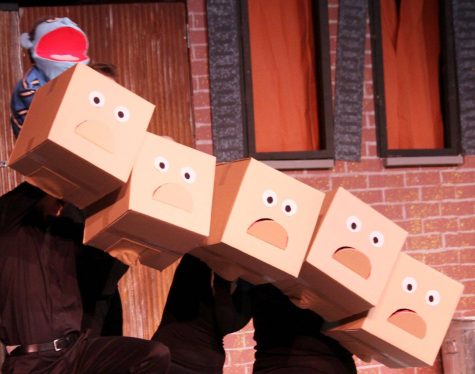Karalee vs. Leah: Does swearing make you sound less intelligent?
October 20, 2015
The use of obscenities is arguably a part of the college culture, but do people who swear sound less intelligent? Here’s what our columnists think:
Karalee Manis: NO
The easy answer to this would be yes. F-bombs aren’t exactly regarded as high on the list of intellectual vocab words. Curse wordsalso tend to sound harshin most circumstances, but that’s the point.
Swearing may not please the ear very well, but it’s scientifically proven to reduce stress and pain.
Through the cathartic release of any number of words that would be censored in some way should you read them here, pain can actually be decreased. A study done by Dr. Richard Stephens at Keele University in England found that subjects who submerged their hands in ice cold water could withstand the temperatures for forty seconds longer when yelling profanities than their clean-mouthed counterparts.
Not only did the obscenity-spewing group last longer in the ice cold water, but they also rated their pain as less overall.
Stephens even said, “I would advise people, if they hurt themselves, to swear.”
Also found through this study was that, in addition to being a coping mechanism, swearing can make you feel more resilient, as it aided the subjects’ in their ability to get through the experiment.
This demonstrates emotional intelligence as the act of cursing can have many active effects for those dealing with something challenging them emotionally.
Swearing is also indicative of creativity. Think about it, how many ways can you say and use f**k and have it still make sense? By my count it can be used as a verb, a noun, an interjection and an adjective.
That’s some language versatility right there and while it may not be polite, it sure is effective.
When you consider the research, swearing is actually a pretty intelligent way to deal with stress, pain and the occasional idiot who cuts you off in traffic.It is an act of emotional expressionism that, used in moderation for maximum effect, is a smart way to deal.
For those dead-set against these verbal expressions, consider this: the banning of wordsnot used with the express purpose to hurt and degrade is a suppression of language, expression, emotion, intellect and culture. We don’t live in Russia – we don’t need to start banning and fining people for uttering curse words.
My advice: add some colorful language to your vocabulary – it will literally make you feel better.
Leah Ulatowski: YES
In the world of higher education, there are certain “bad” words that we’re encouraged to eschew from our vocabulary.
Students who have taken the Public Speaking course at Lakeland are familiar with the feeling of dread that arose whenever “um,” “uh,” or “like” happened to slip from their lips and they were forced to begin the sentence over again as a rule in that class. Heck, anyone who has seen the movie “Dead Poets Society” recalls Robin Williams jumping on a desk and demanding that students avoid lazy words such as “very.”
Interestingly, no one has much to say about actual obscenities and how they limit our magnificent language.
Let me start by saying that foul language does not personally offend me, nor do I expect an individual who has just stubbed his toe and ripped the toenail clean off to exclaim, “oh, fiddlesticks!” However, I can’t help but think less of a generation in which it is not unusual for the F-bomb to follow every other word.
I believe obscenities were meant to be used sparingly and thus truly color someone’s pain or frustration when applied to speech or writing, but too many college students use the F-bomb as repetitively and obnoxiously as the Valley girl’s “like.” The word has lost all shock value, along with most other obscenities, and may as well be axed from our vocabularies.
Aside from the nauseating overuse of obscenities, the words are just downright lazy. If I’ve just met you, I will struggle to view you as intelligent or creative if 90 percent of your speech is comprised of foul language.
If I know you to be an intelligent individual in all others facets of your life, I’ll take your foul language as a sign that you don’t care enough about me to have deep conversations. You just “feel like sh**” instead of sharing the extent of your indisposition, or you want me to “f*** off” rather than express what I’ve done to sour our relationship.
The constant use of obscenities almost always becomes habitual, so it saddens me that you’ll never be taken seriously in the corporate world with such a foul mouth. Additionally, I can just picture you fearing to speak candidly with your own future children because you never practiced using a filter.
I sympathize with the fact that certain backgrounds, such as military service or a household in which obscenities were the norm, foster such language. Heck, sometimes just getting away from mom and her bar of soap makes a student want to scream the F-bomb from the tops of the hills.
However, we must realize obscenities are a disease, a hindrance to self-expression. In stunting vocabularies, these words are downplaying the intelligence and descriptive language that I know rests inside every one of you, but the good news is that it’s never too late to start researching synonyms.
Missed the last Karalee vs. Leah? Read it here to find out what they think about school-mandated community service: https://lakelandmirror.com/opinions/2015/karalee-vs-leah-should-lakeland-require-community-service-to-graduate/













